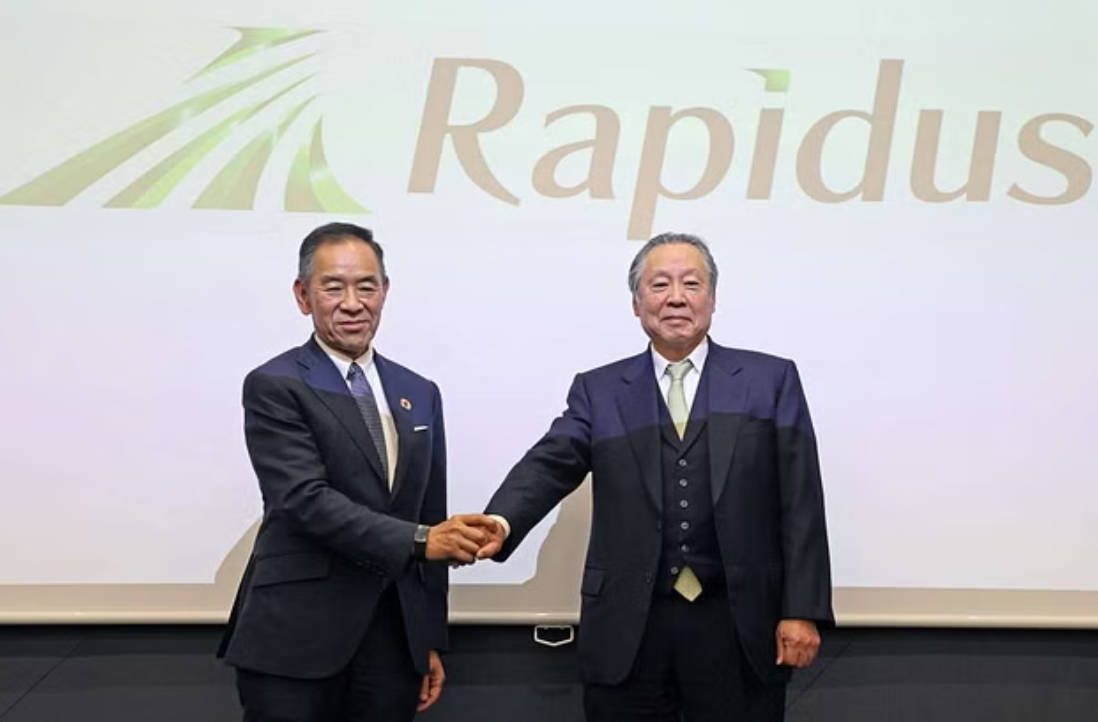Japan's Rapidus challenges the 2-nanometer process and says it will catch up with TSMC within 4 years!
Rapidus, a semiconductor company supported by eight major Japanese companies and funded by the government, is building its first wafer factory to challenge the 2-nanometer process and shoulder significant responsibility for revitalizing Japanese wafer manufacturing. In a recent interview, Rapidus President Toshiro stated that he is confident that the company can catch up with the two major wafer manufacturers TSMC and Samsung Electronics in a short period of time.

Bloomberg reported that 73 year old Toshiro is challenging Japan to build a globally competitive semiconductor manufacturing company within four years. Rapidus was only established in August last year and is spending billions of dollars to create an advanced wafer factory by 2027, becoming a domestic asset that can consolidate and strengthen the Japanese economy.
Rapidus' goal is to have the ability to mass-produce 2-nanometer chips in a process that lags behind TSMC and Samsung Electronics by only two years, which can be considered the boldest bet in the semiconductor industry.
Dongzhelang said, "Being ahead of others and unique is the only position to earn a large profit; if you do what others are already doing, you will make yourself cheaper.
But in recent years, both industry leadership and the ability to develop state-of-the-art processes have been concentrated in the hands of three major companies: TSMC, Samsung, and Intel. Even Intel is still struggling.
The things Rapidus is trying to do are extremely challenging, but not entirely impossible, as it works with global partners and, if necessary, involves relevant national departments, "said Namagawa Ming, an analyst at Omdia in the research industry.
Dongzhelang is the former president and former president of Tokyo Power Technology Innovation, who advocates that Rapidus has all the elements that can make it a major player in the wafer industry. The Japanese government has allocated 330 billion yen (2.4 billion US dollars) to the company, and the Japanese Minister of Economy and Industry has also stated its readiness to provide a budget of the same size every year for the foreseeable future.
Dongzhelang said, "I am quite confident in the 2 nanometer and future 1.4 nanometer, but 1 nanometer will be a big challenge." "We work closely with material and manufacturing equipment manufacturers, and these industries have collaborated with market leaders, including TSMC, to provide advanced technology. Our global partners also promise to fully support the provision of technology and education.
Rapidus has currently formed an alliance with IBM and the Belgian Microelectronics Research Center IMEC, and has also received support from major Japanese companies including Toyota, Sony, and Softbank.
Dongzhelang stated that Japan has a significant domestic supplier of key materials, components, and manufacturing equipment in the chip industry. Many of these industries are eager to collaborate with a Japanese chip manufacturing industry, as they can cooperate with confidence without worrying about losing technological advantages or allowing trade secrets to flow overseas. In the face of intensifying international competition, if Rapidus succeeds, it represents that the domestic semiconductor ecosystem can maintain high profitability.
If we can become the market leader and focus on producing chips in special fields such as AI, then the opportunities ahead are enormous, "said Dong Zhelang Japan does have several semiconductor suppliers with special status, including ABF film suppliers Weizhisu and Edwin Testing Company.
Rapidus currently receives funding from government and corporate partners. Dongzhelang stated that the company does not plan to raise funds from the private sector until the production of chips begins in 2027. He said, "We have considered various fundraising methods such as initial public offerings (IPOs), but our goal is to be financially independent and able to stably produce advanced chips. Therefore, it is important that capital injections do not affect these.
*Disclaimer: The article is sourced from the internet. If there are any disputes, please contact customer service.


